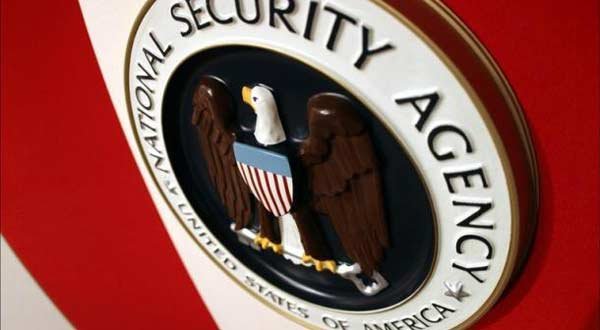By Arun Kumar
WASHINGTON, Dec 17 — In what the media here called a “powerful rebuke” to the Obama administration, a US federal judge has ruled the US National Security Agency’s once-secret mass collection of domestic phone records is most likely unconstitutional.
Describing its technology as “almost Orwellian” and suggesting that James Madison would be “aghast” to learn that the government was encroaching on liberty in such a way, US District Judge Richard Leon said NSA’s action apparently violates privacy rights.
Madison, the fourth US president is hailed as the “Father of the Constitution” for being instrumental in the drafting of the US Constitution and as the key champion and author of the US States Bill of Rights.
The ruling came in a lawsuit brought by conservative activist Larry Klayman, a user of a Verizon mobile telephone who challenged the NSA’s collection of metadata — phone records of the time and numbers called without any disclosure of content — on his behalf and that of a client.
But the judge limited the decision only to their cases and also put off enforcing his order barring the government from collecting the information, pending an appeal by the government.
“I cannot imagine a more ‘indiscriminate’ and ‘arbitrary invasion’ than this systematic and high-tech collection and retention of personal data on virtually every citizen for purposes of querying and analyzing it without prior judicial approval,” said Leon
“Surely, such a programme infringes on ‘that degree of privacy’ that the founders enshrined in the Fourth Amendment,” added the judge, who was appointed to the Federal District Court for the District of Columbia in 2002 by President George W. Bush.
A Justice Department spokesman said Monday that “we believe the programme is constitutional as previous judges have found,” but said the ruling is being studied.
The agency’s collection of “metadata” was exposed by NSA whistleblower Edward Snowden, who has been given 12 months asylum in Russia.
Calling the judge’s ruling a “A Powerful Rebuke of Mass Surveillance”, the New York Times described it as “an enormous symbolic victory for opponents of the bulk-collection programme, and a reminder of the importance of the adversarial process.”
Saying “The NSA must make its case,” the Washington Post opined that “If the government is to emerge from Mr. Snowden’s revelations with the authorities that officials insist are crucial, it will have to do more to demonstrate why they are essential and how Americans’ privacy is being protected.”
Earlier Monday, the White House rejected the suggestion Snowden be granted amnesty, a day after a top NSA official publicly suggested a deal could be reached to keep Snowden from leaking more documents.
“There’s been no change in our position,” White House spokesman Jay Carney told reporters and the US government continued to press Russia.
“He faces felony charges here, he ought to be returned to the United States, again, where he will face full due process and protection under our system of justice, that we hope he will avail himself of.”–IANS


